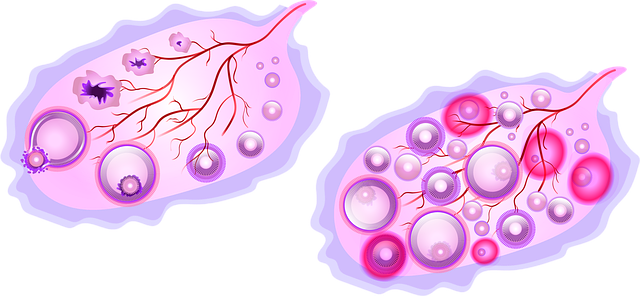How does the contraceptive pill work?



The birth control pill is one of the most popular forms of birth control and it's been used by millions of women around the world for decades.
But how does it work? In this blog post, we'll take a closer look at how birth control pills prevent pregnancy.
We'll also discuss some of the drawbacks of using the contraceptive pill. So, if you're curious about contraception methods or just want to learn more about this specific Pill, keep reading!

They are small tablets that are taken orally every day. The two main types of birth control pills are the combined pill, which contains two different hormones, and the progesterone-only pill, which only contains one hormone.
Both types work by preventing ovulation, a process where the ovary releases an egg each month.
Without an egg, pregnancy cannot occur. These pills also thicken the mucus in the cervix, making it more difficult for sperm to reach the egg.
In addition, they can thin the womb's lining, making it less receptive to implantation. Combined pills must be taken at around the same time every day, while progesterone-only pills can be taken at any time during the day.
While they are extremely effective at preventing pregnancy, birth control pills do not protect against STIs.
For this reason, it is important to use condoms and oral contraception if you are sexually active.

There are two ways in which combination birth control pills work. Their first effect is to stop your body from ovulating. In other words, you won't be releasing an egg every month from your ovaries.
In addition, these pills thicken the cervical mucus around your cervix, which is the fluid that sperm travels through to reach your uterus and fertilize an egg. Sperm cannot reach the uterus due to the thickened mucus.
Pills that contain only progestin also work in several different ways. They mainly thin your endometrium and thicken your cervical mucus.
Upon fertilization, an egg implants in your endometrium, the lining of your uterus. When this lining is thinner, an egg will have a harder time implanting, so pregnancy will not occur. Ovulation can also be prevented by taking only progesterone-containing pills.

There are two main types of contraceptive pills: combination pills and progestin-only pills. Both types of pills are highly effective at preventing pregnancy, but they work in slightly different ways.
The combined pill contains two hormones - oestrogen and progesterone. These hormones work together to prevent your ovaries from releasing an egg each month. The combined pill is over 99% effective at preventing pregnancy if taken correctly. It's also important to remember that you'll need to use additional contraception, such as condoms, if you have sex during the seven-day break when you're not taking the Pill.
The mini-pill contains only one hormone - progesterone. This hormone thickens the mucus in your cervix, making it difficult for sperm to reach an egg.
The mini-pill is around 91% effective at preventing pregnancy if taken correctly.
It can also be used by women who can't take oestrogen for medical reasons. Unlike the combined Pill, you don't need to take a break from taking the mini-Pill - you can take it continuously.
A combination pill will protect you from pregnancy right after the first day of your period if you start taking it within 5 days after the first day of your period.
It is possible, for example, to begin taking the pill anywhere until Saturday morning if you are due to start your period on Monday morning.
You must use another method of birth control for seven days before the pill becomes effective if you begin taking the pill at any other time during your cycle.
It is possible to start taking progestin-only pills at any time during your cycle. The protection against pregnancy will take effect after 48 hours. When you have sexual intercourse within the first two days of starting the mini-pill, you should use another method of birth control.
While these side effects are usually mild, they can be frustrating or even debilitating for some women. If you are concerned about the side effects of taking contraceptive pills, be sure to talk to your doctor.
They can help you find the right brand for you and provide tips for managing any side effects you may experience.
While contraceptive pills are a popular and effective birth control method, they come with a few potential side effects.
Nausea and vomiting: Nausea and vomiting are two of the most common side effects of contraceptive pills. In most cases, these symptoms will subside after a few days or weeks of taking the pill. However, if you experience prolonged nausea or vomiting, you should contact your doctor.
Weight gain: Some women report gaining weight while taking contraceptive pills. This side effect is usually due to fluid retention and is most common in women who are predisposed to conditions like polycystic ovary syndrome (PCOS).
Consider alternative birth control options if you are worried about gaining weight while taking the pill.
Mood swings: Many women report experiencing mood swings while taking contraceptive pills.
These mood swings can be caused by hormonal changes and are usually mild. If your mood swings are severe and interfere with your daily life, please consult your physician.
The birth control pill is a medication taken by women to prevent pregnancy. It works in two ways: by stopping ovulation and by thickening the mucus around the cervix.
There are different types of pills, all containing either progestin or a combination of progestin and oestrogen.
Progestin-only pills mainly thin the endometrium and thicken the mucus in the cervix, making it difficult for an egg to implant if fertilized.
At Welzo, we offer several kinds of birth control pills. To see our range of progesterone-only and combined pills, read through our contraception information page here.










Plus get the inside scoop on our latest content and updates in our monthly newsletter.